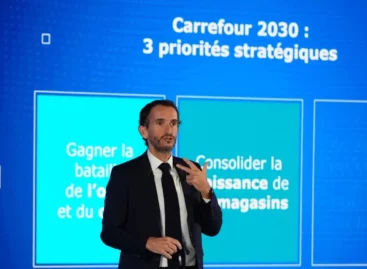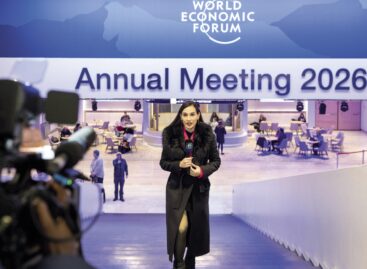42 percent of Hungarian SMEs do not have a sustainability plan – Generali’s EnterPRIZE program encourages good examples
The Generali Group recently published the first results of its SME survey with Bocconi University. While a quarter of businesses keep environmental and social sustainability aspects in mind during their daily operations, most of them still do not have a strategy for this. After last year, Generali announced its EnterPRIZE application for the second time this year, in order to help the spread of the culture of sustainability among European small businesses, including in Hungary, with inspiring examples.

(Photo: Pixabay)
Micro, small and medium-sized enterprises (SMEs), i.e. companies employing less than 250 people, form the solid basis of the economy of the developed world, thus playing a key role in the restart and stabilization after the pandemic, in creating jobs and improving living standards. Recognizing this, Generali launched its EnterPRIZE application in 2021 to support the development of European SMEs and promote the spread of the culture of sustainability by presenting and awarding good practices. In addition, on behalf of the insurance company, Bocconi University prepared a comprehensive survey among small and medium-sized enterprises, in which more than 1,000 European companies participated in this year’s edition. While Generali has already published some of the results of the research, the comprehensive analysis and the white paper based on it will be presented on October 26 in Brussels, where the EnterPRIZE 2022 “sustainability heroes” will also be announced.
The real breakthrough awaits: predictable financing and incentives are needed
According to the findings of the survey, 26 percent of European SMEs stated that they have already put into practice their ESG (Environmental, Social and Governance) strategy, which represents a major step forward in the 2020 European Commission research. compared to 14 percent. At the same time, more than 40 percent of the respondents do not have a sustainability plan at all – even though, based on the results of the survey, the customers of businesses that take environmental and social responsibility aspects into account are more satisfied, their operations are more efficient, and their market share and corporate reputation are also improving. Unfortunately, the Hungarian participants of Bocconi University’s research cannot boast of outstanding results: only 11 percent of domestic SMEs apply ESG strategies in practice – which is far behind the international competition -, 12 percent of them plan to introduce it in the future, while 42 percent not only do not have such, but has no intention of seriously dealing with the issue.
Philippe Donnet, Generali Group CEO, said: “According to the majority of interviewed SMEs, the main obstacle to the introduction of ESG plans is the lack of predictable financing and easily accessible incentives, as well as the low demand for sustainable products and services. This also shows that the financial and insurance sectors can do a lot to promote sustainability initiatives, and Generali’s goal is to help small and medium-sized enterprises by presenting and supporting inspiring good practices”.
Domestic “sustainability heroes” on the international scene
A total of more than 6,000 SMEs from 7 countries applied for the first EnterPRIZE application in 2021. The entrants could measure themselves in three categories, in the fields of employee welfare, environmental protection and responsibility for microenvironments, and from among the national category winners, the professional jury and Generali employees selected small and medium-sized enterprises implementing exemplary sustainability practices for the entire European community, i.e. the continent ” sustainability heroes”. The initiative also stimulated the imagination of domestic companies, as a total of 81 applications were submitted by Hungarian applicants, and Grapoila, which produces cold-pressed oils and other products in a “zero waste” manner, was also included among the 7 international “heroes”. And this year, EnterPrize can be even more successful than last year in Hungary: this time, 127 domestic companies submitted their applications in 3 categories. Halas Tűzvélemy Kft. was the winner in the employee welfare category; in the category of responsibility towards the micro-environment, Csákányi Kenyér Bt. won the HUF 3 million grant; and Manual Divat Kft. won with its tender submitted in the field of environmental protection. Based on the evaluation of the International Scientific Committee of KKV EnterPRIZE, the latter company won the title of Hungary’s Sustainability Hero, so they will represent our country at the award ceremony in Brussels at the end of October.
Already this year, small and medium-sized enterprises from 9 European countries – Austria, Croatia, the Czech Republic, France, Germany, Hungary, Italy, Portugal and Spain – could apply for recognition and financial support, and on October 26 it will be revealed which SMEs in 2022 who deserve absolute victory in front of the European panel. At the event, a white paper based on a survey by Bocconi University will also be presented, which maps the present and the challenges of sustainable business practices of enterprises, as well as formulates proposals for the creators of European guidelines and financiers – in other words, it brings us one step closer to a more sustainable future.
Related news
Carrefour Unveils 2030 Strategy, To Focus On France, Spain And Brazil
🎧 Hallgasd a cikket: Lejátszás Szünet Folytatás Leállítás Nyelv: Auto…
Read more >Related news
Lidl guarantees fairer prices for cocoa farmers
🎧 Hallgasd a cikket: Lejátszás Szünet Folytatás Leállítás Nyelv: Auto…
Read more >40 secure jobs, sustainable solutions – new BURGER KING® in Csepel
🎧 Hallgasd a cikket: Lejátszás Szünet Folytatás Leállítás Nyelv: Auto…
Read more >









